
Alfred Ernst Rosenberg was a Baltic German Nazi theorist and ideologue. Rosenberg was first introduced to Adolf Hitler by Dietrich Eckart and he held several important posts in the Nazi government. He was the head of the NSDAP Office of Foreign Affairs during the entire rule of Nazi Germany (1933–1945), and led Amt Rosenberg, an official Nazi body for cultural policy and surveillance, between 1934 and 1945. During World War II, Rosenberg was the head of the Reich Ministry for the Occupied Eastern Territories (1941–1945). After the war, he was convicted of crimes against peace; planning, initiating and waging wars of aggression; war crimes; and crimes against humanity at the Nuremberg trials in 1946. He was sentenced to death by hanging and executed on 16 October 1946.

The Hitler Youth was the youth organisation of the Nazi Party in Germany. Its origins date back to 1922 and it received the name Hitler-Jugend, Bund deutscher Arbeiterjugend in July 1926. From 1936 until 1945, it was the sole official boys' youth organisation in Germany and it was partially a paramilitary organisation. It was composed of the Hitler Youth proper for male youths aged 14 to 18, and the German Youngsters in the Hitler Youth for younger boys aged 10 to 14.
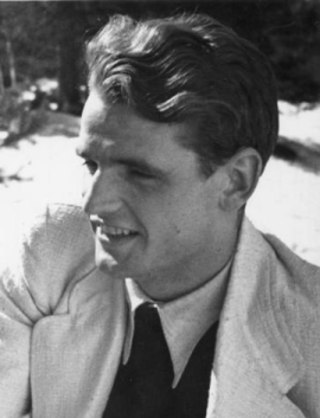
Hans Fritz Scholl was, along with Alexander Schmorell, one of the two founding members of the White Rose resistance movement in Nazi Germany. The principal author of the resistance movement's literature, he was found guilty of high treason for distributing anti-Nazi material and was executed by the Nazi regime in 1943 during World War II.
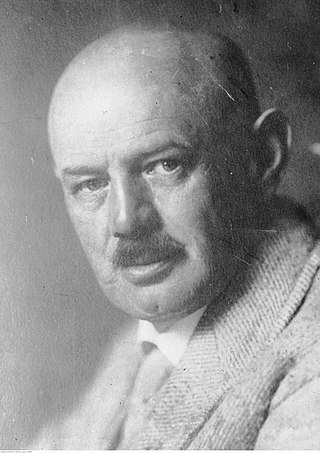
Dietrich Eckart was a German völkisch poet, playwright, journalist, publicist, and political activist who was one of the founders of the German Workers' Party, the precursor of the Nazi Party. Eckart was a key influence on Adolf Hitler in the early years of the Party, the original publisher of the party newspaper, the Völkischer Beobachter, and the lyricist of the first party anthem, Sturmlied. He was a participant in the failed Beer Hall Putsch in 1923 and died on 26 December of that year, shortly after his release from Landsberg Prison, from a heart attack.
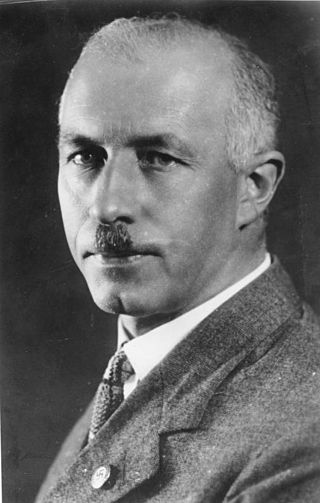
Gottfried Feder was a German civil engineer, a self-taught economist, and one of the early key members of the Nazi Party and its economic theoretician. It was one of his lectures, delivered in 1919, that drew Adolf Hitler into the party.

Johannes Stark was a German physicist who was awarded the Nobel Prize in Physics in 1919 "for his discovery of the Doppler effect in canal rays and the splitting of spectral lines in electric fields". This phenomenon is known as the Stark effect.
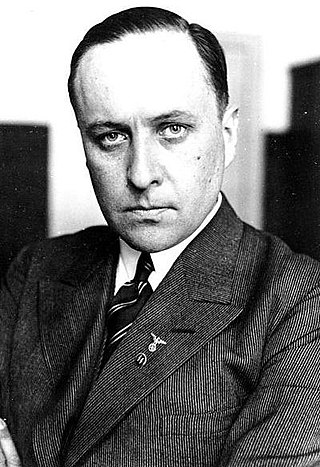
Richard Walther Darré was one of the leading Nazi "blood and soil" ideologists and served as Reich Minister of Food and Agriculture. As the National leader for agricultural policy, he was a high-ranking functionary in the Nazi Party and as a Senior group leader in the SS, he was the seventh most senior commander in that organisation. He was tried and found guilty on three counts at the Ministries Trial.
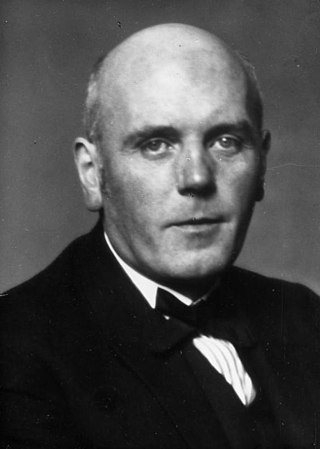
Paul Ludwig Troost was a German architect. A favourite master builder of Adolf Hitler from 1930, his Neoclassical designs for the Führerbau and the Haus der Kunst in Munich influenced the style of Nazi architecture.

German Christians were a pressure group and a movement within the German Evangelical Church that existed between 1932 and 1945, aligned towards the antisemitic, racist and Führerprinzip ideological principles of Nazism with the goal to align German Protestantism as a whole towards those principles. Their advocacy of these principles led to a schism within 23 of the initially 28 regional church bodies (Landeskirchen) in Germany and the attendant foundation of the opposing Confessing Church in 1934. Theologians Karl Barth and Dietrich Bonhoeffer drafted the Barmen Declaration the same year opposing Nazi doctrines.

Walter Kempowski was a German writer. Kempowski was known for his series of novels called German Chronicle and the monumental Echolot ("Sonar"), a collage of autobiographical reports, letters and other documents by contemporary witnesses of the Second World War.
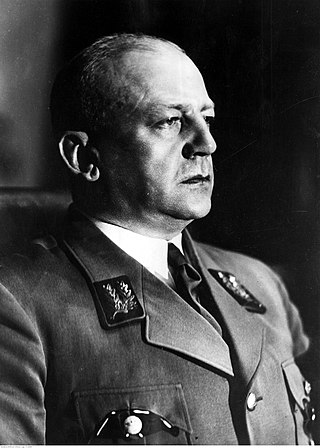
Adolf Wagner was a Nazi Party official and politician who served as the Party's Gauleiter in Munich and as the powerful Interior Minister of Bavaria throughout most of the Third Reich.
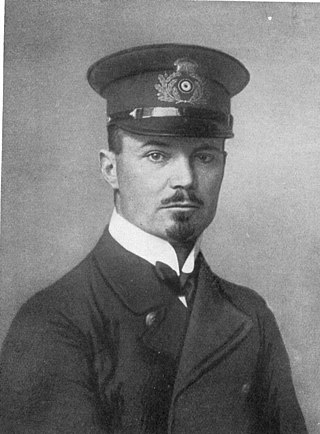
Hermann Ehrhardt was a German naval officer in World War I who became an anti-republican and anti-Semitic German nationalist Freikorps leader during the Weimar Republic. As head of the Marine Brigade Ehrhardt, he was among the best-known Freikorps leaders in the immediate postwar years. The Brigade fought against the local soviet republics that arose during the German Revolution of 1918–1919 and later was among the key players in the anti-democratic Kapp Putsch of March 1920. After the Brigade's forced disbanding, Ehrhardt used the remnants of his unit to found the Organisation Consul, a secret group that committed numerous politically motivated assassinations. After it was banned in 1922, Ehrhardt formed other less successful groups such as the Bund Viking. Because of his opposition to Adolf Hitler, Ehrhardt was forced to flee Germany in 1934 and lived apolitically in Austria until his death in 1971.

German Bestelmeyer was a German architect, university lecturer, and proponent of Nazi architecture. Most of his work was in South Germany.
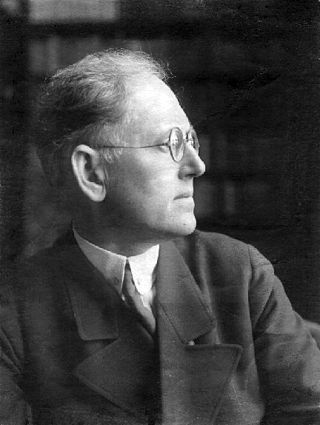
Paul Schultze-Naumburg was a German traditionalist architect, painter, publicist and author. A leading critic of modern architecture, he joined the Nazi Party in 1930 and became an important advocate of Nazi architecture.
Josef Pieper was a German Catholic philosopher and an important figure in the resurgence of interest in the thought of Thomas Aquinas in early-to-mid 20th-century philosophy. Among his most notable works are The Four Cardinal Virtues: Prudence, Justice, Fortitude, Temperance; Leisure, the Basis of Culture; and Guide to Thomas Aquinas.

Franz Seldte was a German politician who served as the Reich Minister for Labour from 1933 to 1945. Prior to his ministry, Seldte served as the Federal Leader of Der Stahlhelm World War I ex-servicemen's organisation from 1918 to 1934. Ideologically, he identified as a national conservative.

Artur Dinter was a German writer and Nazi politician who was the Gauleiter of Gau Thuringia.

Will Vesper was a German author and literary critic.

Jakob Wilhelm Hauer was a German Indologist and religious studies writer. He was the founder of the German Faith Movement.

Various organisations in Nazi Germany required their members to swear oaths to Adolf Hitler by name, rather than to the German state or an officeholder. Such oaths were intended to increase personal loyalty to Hitler and prevent dissent. The Hitler oath, introduced for all members of the Wehrmacht and civil servants in 1934, was one such oath. Others were sworn by members of organisations such as the Schutzstaffel (SS), whose oath may have inspired the Hitler oath, and by the Hitler Youth.



















